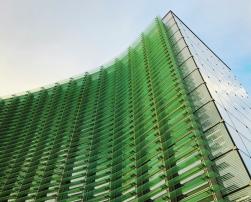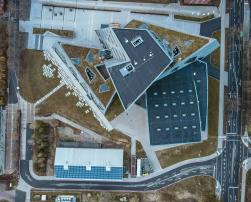
Building sustainability: addressing the need for a holistic and fair approach
Buildings in the EU contribute significantly to environmental issues, prompting the need for a comprehensive policy approach to promote sustainable practices across their life cycle, including prioritising renovation, circular construction, low-impact materials, climate resilience and ensuring affordable housing through participatory decision-making and subsidies.

How can renewable energy be inclusive?
A briefing from the European Environmental Bureau (EEB) explains that increasing renewable energy can benefit vulnerable households by extending support to those in rented or multi-home buildings, helping them save on energy costs and reduce fossil fuel reliance, with additional funding to mitigate carbon pricing impacts.

Manifesto: practical policies for a just and resilient built environment
The manifesto calls for coordinated EU policies to create a just and resilient built environment, addressing social and climate challenges.

Stakeholder approach for deep retrofit
A recent publication from the INFINITE project highlights the importance of stakeholder involvement in driving industrialised deep renovation of old buildings.

Façade design for a greener urban environment
This study reviews how façade design—through materials, geometry, and vegetation—can address urban heat, pollution, and biodiversity loss, highlighting benefits and trade-offs while identifying research gaps.
AIVC's Ventilation Information Paper #49 - Resilient Cooling of Buildings
AIVC's Ventilation Information Paper #49 discusses resilient cooling of buildings, as defined by IEA EBC Annex 80.

iBRoad2EPC field test results
This report summarises the results of the iBRoad2EPC field test based on analysis of the evaluation surveys from energy experts and building owner that took part in the field test.

Barriers to green space heating & cooling and how to overcome them
The paper highlights that green heating and cooling technologies, despite their benefits, are underused in Europe due to barriers such as dependence on fossil fuels and insufficient expertise; however, targeted policies and innovations could enhance their adoption and contribute to achieving climate goals.

Evaluation of energy efficiency measures addressing the needs of energy poor households in rural areas
The new report by the RENOVERTY project indicates the rigorous need for policy transformations and improvements to address energy efficiency and energy poverty issues in rural areas.

Expanding the concept of users in energy communities: impact of including businesses and industry
This paper shows that including businesses and industrial users in renewable energy communities can greatly improve energy sharing and self-sufficiency for residential members.